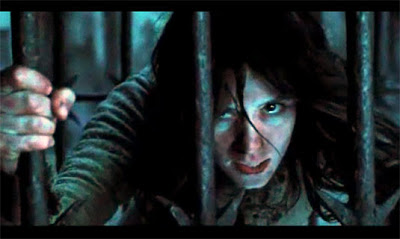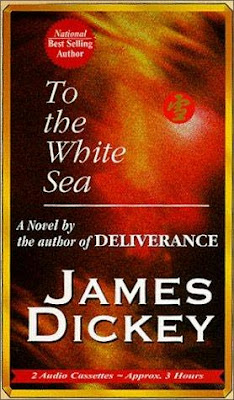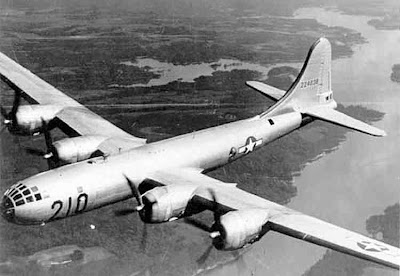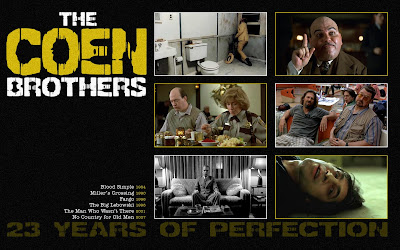Search Results for: the traveler
Genre: Horror/Fantasy
Premise: A 14th century Crusader must transport a witch through plague-filled France, the very witch it is believed, who cursed the country with the disease.
About: Bragi Schut, the writer, was one of the five contestants to win the Nicholl Fellowship back in 2003. He did so with this script, becoming one of the rare exceptions from the prestigious competition to get his winning script into production. The film is already in the can and will be released sometime this year. Schut, while not having a lot of produced success since 2003, recently made a big splash with his sale of “The Last Voyage of Demeter,” which follows the ill-fated crew aboard the ship Demeter, which carried Dracula’s coffin from Transylvania to England. Obviously, we can see why he was attracted to the material, as the storylines are almost identical.
Writer: Bragi Schut
Details: 2004 (2nd draft) – This is not meant to be a review of a movie, but rather a look at an early draft of the script. I wanted to get as close as possible to the Nicholl winning draft, so you guys could see what won the contest. The final film is likely to be very different.

Okay, the second you say to me, “Carson, I have a script about witches! Will you read it??” I will say, “No,” and then probably run screaming in the opposite direction. And I hope you take no offense to this. Believe me when I say I’m saving both of us a lot of disappointment. I just don’t care about witches. Or wizards. Or vampires or werewolves. My idea of hell is a Twilight/Harry Potter double feature. But you can only ignore people telling you a script is awesome for so long. And I’ve received so many endorsements of “Season Of The Witch,” that I could probably fill up an entire new Harry Potter sequel with the e-mails. But it was when I updated the Reader Top 25 list that I could continue my denial no longer. The script received over 40 votes, unusual for a script that hasn’t been featured on the site. So I did something I almost never do. I read a script I knew I was going to hate.
And then…
The magical wand of screenwriting came down out of the sky and proved, once again, that it doesn’t matter what the subject matter is. If you write a good story with good characters, people will come Ray. People will come. And I found myself smack dab center inside that cornfield: a believer. In fact, between this and “Oh Never, Spectre Leaf,” I may become an official card-carrying fantasy club member by next week.

Season Of The Witch is about a great knight who has lost faith in God. He and his loyal companion have just come back from the Crusades, where they witnessed unimaginable horrors, women and children slaughtered as ruthlessly as soldiers. It was enough to make a man lose faith in humanity, to make a man lose faith in God. And that is where LaVey finds himself, a lost soul whose faith has been broken. He can barely muster the motivation to journey back to his hometown, Marseilles.
But for better or worse, LaVey won’t have to worry about that. That’s because the French countryside is eerily empty. There isn’t a farmer or a traveler in site, and the two blindly trudge forward, becoming more confused with each step. What the hell’s going on here?? Alas, a stop at a local farmhouse explains it all. A couple, in their bed, dead, covered with boils and puss. LaVey and his fellow soldier have had the unfortunate luck of coming back to France during……..THE BLACK PLAGUE!!! – a pandemic that killed 3 out of every 4 people ON EARTH.
No sooner have they run from the house than they are approached by a bishop. The bishop surprisingly calls LaVey by name – tells him the Cardinal needs to speak with him at once. To the church they go, where an ailing Cardinal fills in the blanks. Everybody’s dead or dying, including him. The only good news is they have who did it, the one responsible for the plague. It is a witch, and she is chained up in the dungeon below. The Cardinal needs LaVey to escort her to a town in the mountains where monks are waiting and will sacrifice her – thereby ending the curse of the Black Plauge.

The thing is, LaVey doesn’t believe in hocus-pocus anymore. There is no Heaven. There is no Hell. Therefore this woman cannot be a witch. Tis impossible. So he agrees to take her on one condition. Once they get there, she is tried as a human. If she is considered to be guilty, then fine, they can fry her. Or, you know, shoot arrows at her head. If not, she must be let go. The Cardinal is incredulous, but what choice does he have? LaVey is his last hope. He agrees. Accompanying LaVey will be his comrade Felson, Sancierre (the knight) Debelzaq (the priest), Hagaman (the swindler), and Kaylan (the eager 17 year old dreamer, who hopes to one day be a knight himself).
The faux-fellowship finds themselves travelling through the eerie lifeless roads of France, occasionally steering through towns where the dead are piled up like old garbage, rotting against the sides of buildings. Disease is everywhere, and could strike at any moment. But the real danger is from within. The witch, who can be equal parts charming, innocent, evil, sly, and vindictive, is constantly testing the members of the caravan, especially LaVey, who she confesses to that she is the devil. But he dismisses it as the ramblings of a sick woman. There is no Devil. There is no God. And thus, he focuses only on his job. Get the woman to the town. Try her. And be done with it.
What I loved so much about this script was that it’s basically an anti-contained thriller. So many people are trying to write these contained thrillers lately, not understanding that there are other ways to keep a group together and retain the same type of tension. These six may not be contained by walls, but they all must stay together because of the situation. If this witch were to escape somehow, she would complete her curse, damning the last ¼ of the population. They, and every remaining man and woman, would die. It’s the same life or death stakes…from a completely different angle.

I also enjoyed watching the witch play with LaVey. She’ll trick one of the weaker members and slip out of her cage, have everyone chase her, get caught again, slammed back into her cage, and LaVey will ask, “If you’re a witch, why not strike us down right now? Why not conjure a lightning bolt to destroy your cage so you’ll be free? If you were so powerful, you could leave whenever you wanted.” And she basically says, “Cause it’s so much more fun fucking with you.” It’s that combination of threats from inside, a haunting countryside, the likelihood of disease, and each character’s, especially LaVey’s, own inner demons, wrapped inside a ticking time bomb, that give this script such a unique quality. When you add the perfectly baked macabre tone, you can practically hear the echoing clops their footsteps make as they trudge through these empty fog-filled towns. You can smell the dead. You can sense the despair. It’s really good stuff.
My only real problem with the script is LaVey’s belief system. He’s convinced this woman is not a real witch, because that would mean there was a God, and he doesn’t believe in God. But when someone’s able to summon wolves out of the forest to attack you, and then after defeating those wolves, she reanimates them to fight you again…I mean, I think at that point you have to admit that the woman in the cage is probably a witch.
Anyway, this was a very surprising read. Thought I would hate it. Ended up liking it a lot. Check it out!
[ ] What the hell did I just read?
[ ] wasn’t for me
[xx] worth the read
[ ] impressive
[ ] genius
What I learned: One of my issues with the Clash Of The Titans script was that Perseus sort of hangs back the whole time and lets everybody else do the doing. This is neither a good or a bad thing. It’s a choice, and one many screenwriters make. Neo’s character does it. Luke Skywalker’s character does it. And it works because we like the underdog. But your character definitely possesses a more “weighty” quality to him when he’s the one leading the charge from the get-go, which is how LaVey is drawn here. He’s the Crusader, the hardened knight, the alpha male. There’s something comforting about having a hero take charge, proactively dictating the story from page 1, and it was a good reminder that you don’t always have to transform the wimpy schlep into the surprise hero to craft a good screenplay. What’s wrong with making your hero the badass from the start?
Note: If you are a fan of both Scriptshadow and the Coen Brothers, I highly advise you not read the following review. There is a good chance you will never want to read Scriptshadow again. Please, I’m begging you, turn back now. You will hate me. As a result you will leave. Which means you won’t benefit from the future reviews and scripts that appear on the site. I know it’s tempting but I’m doing this for your own protection……..Still here? Okay, I warned you.
Genre: Drama
Premise: An American gunner for a B-29 bomber squad crash lands in Tokyo during World 2 and must find a way to escape alive.
About: This finished number 20 on the Scriptshadow Reader Top 25 List, which is pretty impressive when you consider it hadn’t been officially mentioned on the site. Joel and Ethan Coen adapted the novel over a decade ago, and many consider it to be one of the best screenplays not yet produced. James Dickey, who wrote the novel the script was adapted from, also wrote “Deliverance.”
Writers: Joel and Ethan Coen (based on the novel by James Dickey)

Remember the large group of friends you used to hang out with in high school and college? For the most part, everybody got along. Being in a large group of people who just “get you” is probably one of the safest most comforting feelings you can have in life. But in those groups, there’s always that one person, that one guy or girl you just don’t see eye to eye with. Both of you know it. Both of you do your best to work around it. But because there is absolutely zero crossover in your interests, zero crossover in your sense of humor, because there seemingly isn’t a single thing in life that the two of you agree on, all you can do is tolerate each other and not let your dislike of one another screw up the group dynamic.
That person for me was Eli. I hated Eli. And it was clear he didn’t like me either. I couldn’t even tell you the reasons why I didn’t like Eli. He was just one of those people that rubbed you the wrong way. So deep was our dislike for each other, that if ever a segment of the group couldn’t make it somewhere, I’d have to check to see how many others were coming. If it was five people and Eli, I could handle it. But once it got down to four or three? Which meant Eli and I would actually have to talk? No thank you. I was out. And I’m certain he did the same. Over time, Eli and I basically became experts at hating each other.
Well when you go off into the real world and grow up a bit, you look back at things and you think, “Maybe I could’ve approached that better.” “Maybe I helped contribute to the misunderstandings just as much as he did.” You gain some perspective, and wish you would’ve tried harder.
So a couple of years out of college and a good six years since I’d last seen Eli, I flew in for one of my friends’ bachelor parties. The whole group was back together again, and there was Eli, grown up, matured, nice, a seemingly different man than the character I remembered. I knew right then that we were going to be okay, that we could work things out.
Eli also had with him a harmonica, which he was busting out occasionally, playing for people. And he was actually quite good. Better yet, it was the perfect conversation piece. At the time, one of my favorite bands was Blues Traveler, which, for those of you unfamiliar with them, has a lead singer whose trademark is his unprecedented harmonica mastery. It was the perfect topic to bring us together. I was certain that if I could just get Eli alone, we’d end up talking all night, forgetting every issue we ever had with each other, and becoming better friends than Selena Gomez and Demi Lavato.
About an hour later, I saw Eli getting a drink and decided to strike. I approached him with a big smile and asked him what he’d been up to. There was still a trace of distance in his voice, but I focused on the positive. At least he was engaging me. Eli told me he had gone into real estate where he was quickly becoming a force. He also recently asked his girlfriend to marry him. Things were clearly going well for him. When there was a brief potentially awkward pause, I knew it was the perfect time to bring up the harmonica. “So how long have you been playing?” I asked. “About five years now,” he said. “I heard you playing earlier. You’re really good.” “Thanks.” “What kind of stuff do you play?” “I like a bunch of different kinds of music but mainly blues.” It was exactly the way I had planned it in my head. I threw him the moneyball.
“I’m a huge fan of Blues Traveler. I don’t know anyone who can play a harmonica like that guy.” And he paused, looked at me for a moment. I noticed his face becoming a deep shade of red. For the briefest of moments, he actually looked like he was going to kill me. Though I’ll never remember exactly how he said it, Eli responded to me with something like: “Blues Traveler is a fucking joke. I hate John Popper [the lead singer]. He’s everything that’s wrong with the harmonica. They’re a piece of shit pop-group that fucked up everything that’s pure about music. I hate them with a passion and wish that dude would die.”
I stood there for what I’m pretty sure was six years of silence. I then offered a forced smile, turned, and walked away. I have not spoken to Eli since, nor do I ever plan on speaking to Eli again. That experience taught me a profound life lesson: Two forces that aren’t meant to be will never be. Time will pass. You can keep trying. But you’ll never like each other. This is the reason why I know I will never like the Coen Brothers.
The Coen Brothers would probably never be as rude as Eli, but just like the harmonically angry one, I don’t get them. I just don’t. Everything they do exists on a plane outside of what I’m willing to consider entertainment. I got through ten pages of “A Serious Man,” and thought it was a rambling incohesive piece of shit. Burn After Reading? A desperate attempt to grab A-list actors by creating a stupid story with overtly outrageous characters. More like Burn Before Reading. Ditto for “O Brother Where Art Thou.” In fact, that’s how they seem to approach most of their movies. And don’t get me started about No Country For Old Men, which, based on a novel or not, decided to deprive the audience of a fairly important piece of information: THE ACTUAL ENDING. I couldn’t even tell you what they did for the seven years previous to that. Didn’t they remake The Ladykillers?

Look, I’m not going to sit here and tell you that the Coens aren’t talented filmmakers. They clearly have a vision – a unique eye, and they seem to have a pretty good grasp on the old “chase the guy with the bag of money” device. But I truly hate their writing. I will never ever get it.
To The White Sea is my Eli at the bachelor party moment for the Coens. I’ve heard about how good this script is many times, but when it scored so highly on the Reader List, I finally said, “I have to give this a shot.” So Wednesday I approached To The White Sea at the party, and had a conversation. Would the script prove my theory wrong? Or would I continue to lump the Coens in with Eli?

It’s March of 1945, roughly five months before the end of World War 2. A guy named “Muldrow” is supposedly the best B-29 gunner in his squadron. After we’re told a few times how awesome he is, he’s off on a mission to blanket Tokyo with more explosions than a Michael Bay movie (not including Bad Boys 2). As they’re flying along, their plane gets hit, he gets ejected, and falls, I think, right outside Tokyo. This coincides with the ending of all dialogue in the film, which I was really excited about, since it made a 90 page screenplay read like it was 180.
For reasons I’m still trying to grasp, we inexplicably flashback to Muldrow in Alaska(?) with a bunch of snow dogs. Neither Cuba Gooding Jr. or Paul Walker is nearby, so when Muldrow’s hands get a little chilly, he slices one of the dogs in half and shoves his hands inside to keep warm. I don’t know about you but I love me some dog killers. I was really warming up to this character.
Back in the present, Michael Vick wakes up, seemingly okay after the fall, and must now find a way out of Tokyo without being seen or killed. A few pages after the wonderful dog murdering scene, he slices the throat of an innocent civilian and steals his clothes and hat, which he then hides under so people won’t see that he’s American.
He then wanders through Tokyo and its outskirts – though it’s never clear to me where he’s planning to go, as the last time I checked, Japan was an island. In the draft I read, there were occasional pages that had been omitted. And I suppose this could’ve been explained in one of them, but I considered these deleted pages to be more a gift from God, a tiny favor from him to shorten my read. But even God himself could only do so much. Every endless page was hell. In fact, I started to wonder who was going to survive longer. Me or this character.
Muldrow continues to sneak around Japan, eventually finding his way into a house and murdering an old blind man. He also bludgeons and beats to death a goat, rips apart some birds, and if that isn’t enough animal death for you, a cute cub bear gets torn apart later. By this point I had broken out the pom-poms, such was my rooting interest for this wonderful man. Unfortunately, Muldrow never finds that deaf school of children to massacre. I guess we can always hope for a sequel.
There’s a big ironic moment when American bombers fly over and start bombing the very city he now finds himself in. Except I was less focused on the irony and more concerned about the bomber’s errant aim. I knew if they got him, the script would be over. Or, at least, I hoped it would. But alas, the idiots kept missing. I guess they shoulda hired Michael Bay.

Even with it being only a couple of days since I read the script, I can’t really remember the end, other than I was bored to tears. I do remember him getting captured though, I think. And maybe almost dying. Alas, for those kinds of details you’ll have to carve out four hours of free time for yourself. Cause yes, it takes that long to read. (I know forgotten Egyptian cave languages that read faster than this)
Um, is there a movie in here? I suppose so, though I thought it woulda been way cooler if it was about an army official crashing in Hiroshima who had knowledge that the atom bomb was about to be dropped there in an hour or something. Now that’s a movie I’d wanna see. Hmm, maybe I’ll pitch it to Eli.
[x}What the hell did I just read?
[ ] barely kept my interest
[ ] worth the read
[ ] impressive
[ ] genius
What I learned: Having your main character kill a lot of animals will make him extremely likable. Kill as many animals as possible always in scripts. Puppies, chipmunks, bunnies, and baby deer are preferable.
In the spirit of fairness, I decided to give a friend of mine, Aaron Coffman, who’s a great screenwriter himself and a huge fan of To The White Sea, a chance to offer his thoughts on the script. Obviously, he’s wrong, but I’ll let him talk anyway. :)
When Carson first hinted that TO THE WHITE SEA may receive a ‘trash’ rating, I politely demanded the chance to offer a counter review, for I, like many of you, rather enjoyed the script.
A couple years ago, when a friend sent me the Coen Brother’s adaptation of the James Dickey novel, I tore into it, smiling at the sandpapered words first spoken by a hardened Colonel:
Fire. We are going to bring it to him.
Like the opening of PATTON, a commanding officer stands before his men, issuing orders that not only asks them to be absolutely brutal to the enemy, but to their enemy’s families and to their way of life. He’s not just asking his men to make the other poor bastard die for his country, he’s demanding they mutilate that country in the process.
…we’re going to put it in his dreams. Whatever heaven he’s hoping for, we’re fixing to make a hell out of it… no ammo, no gunners. All bombs. All payload. All fire.
And so begins TO THE WHITE SEA.
The opening image of a sea bird, flying against the bluest of skies, suddenly overtaken by the thunderous roar of a B-29 speaks volumes about what the script will set out to achieve. The constant battle between nature and man coarses throughout the eighty-nine page script.
The year is 1945. The war in the pacific is violently inching closer to an end. We meet Muldrow, the tail-gunner of a B-29, preparing for the hunt — or in this case, a bombing raid over Tokyo. The crews are told that in a few days the wooden city will be firebombed, but before that, regular bombs will have to do.
It’s on the great hunt that Muldrow’s plane is shot down and he is the lone surivor to jump from the plane’s gutted husk and make it safely to the ground. The only problem is that he’s in Tokyo, and in a matter days the entire place will be hit with white phosphorous and napalm.
And here is where the script started to win me over. In any other circumstance the plot of the film would use the firebombing as a ticking-clock. The script would become about Muldrow trying to escape before the American bombers return. He’d surely have to kidnap a Japanese citizen, but by the end of it they’d come to understand each other, and the Japanese captive would sacrifice himself so that Muldrow could flee to safety.
But not here. After spending the night in a construction vehicle, Muldrow starts North, where he can escape into the Aleutians, and by page thirty-four, Tokyo is on fire. Clearly this script isn’t as interested in standard conventions. There will be no Japanese captive with whom he can share stories of his past; nor will his captive-turned-friend be around to save his life.
Through a series of short flashbacks, done with some of the more interestingly executed transitions I’ve read, we learn about Muldrow’s past. We see him, years before, steering sled dogs through the Alaskan wilderness. When he tries to untie a frozen knot, Muldrow loses his gloves in the snow, and with the night quickly approaching, and unable to start a fire with his frozen hands, Muldow takes one of the sled dogs behind a mound, slices it open, and sticks his hands inside for warmth.
It is a scene that not only develops who Muldrow is as a character, but also the overall theme as well. Through his actions we see that Muldrow can and will to do whatever it takes to survive, and do it without any hesitation. The scene also begins to establish the thematic element of caged animals. Much like in RAGING BULL, when Jake LaMotta is thrown in prison and begins to bash his head against the cement wall, screaming that he’s an animal, here to we start to get a feeling that Muldrow himself has been caged, and that now the animal has been set free.
As Muldrow makes his escape, many might be put off by brutality in which Muldrow kills. However, I would counter by saying each murder allows him to find a way to survive.
He kills a construction worker for his clothes so that he can get out of his flight suit. During the firebombing of Tokyo he kills a man his size so that he can get out of his combat boots which clearly would give him away.
In one of my favorite sequences of the script, Muldrow kills a man who feeds a flock of swan in a pool outside a house. The murder seems unnecessary at first because even though he does eat the swan (the one which fought back), it’s unclear why he clubs a handful of the birds to death. We see him plucking the feathers, shoving them into a bag and then setting out again, and yet the question as to what he’s up to isn’t made clear. Later, when he discovers a blind man’s house, he waits for the caregiver to leave, then sneaks in. He quickly goes through the house, searching for something, ignoring the blind man. The blind man, realizing an intruder is in the house grabs a blade and nearly kills Muldrow before he himself is dispatched rather violently.
It’s the first time Muldrow has come upon a person who he doesn’t kill on sight, simply because the man can do him no harm. He can’t tell the authorities that Muldrow is an American. It’s only after the man attacks that Muldrow kills him. The sequence comes to an end as we realize why Muldrow came into the house. He uses a needle and thread to sew the swan feathers into his jacket to add insulation. It’s going to be cold on his trip, and again survival drives him.
To cover his tracks Muldrow sets the house on fire, but stops to let a song bird out of it’s cage. Once again the use of caged animals comes into play. Unlike Muldrow, though, the song bird flaps about the burning room only to return to its cage to await certain death.
When a small tribe takes him in, the looming threat that he might have to kill them all hangs heavy over the sequence and drives up the tension. During a celebration, two caged bear cubs are brought before Muldrow. The villagers kill one in a ritualistic manner. Later that night, on his way out of the village, Muldrow kills the man in charge, then sets the remaining cub free. It’s an interesting moment because we’re left to wonder if Muldrow did so to cover his tracks, or if he felt an animalistic need to free the caged bear. He doesn’t kill the entire village, which seems like something he’d do if his motive was to cover his tracks. Instead, he kills the man who allowed the bear cub to be slaughtered in its cage. Once the murder has occurred, and the bear has been set free, Muldrow’s own sense of survival kicks in and he murders several more tribe members on the edge of town to make it appear as though the bear cub was responsible.
[**major spoiler below**]
When he finally makes it north, Muldrow encounters another man, who shows him his prized hawks. During a trek through the forest, as the hawk flies high above him, Muldrow is shot and killed by soldiers as they stalk through the snow. It’s not made clear if they were after him specifically, but they’re dressed in white camo to disguise them in the snow, and we get the feeling that they too were on a hunt.
As Muldrow lies dying, he watches the hawk above him, in the blue sky, like the bird we saw in the first moments of the script. Muldrow’s voice echos the words:
I was in the place I tried to get. I was in it and had it. And will be everywhere in it from now on.
And so it is that Muldrow, once a caged animal, returns to nature from which he was born.
What I learned: This isn’t going to be everyone’s cup of tea. This is clearly written by two people who have never really been interested in the standard conventions of a Hollywood story. The fact that the font is in Times New Roman will make some feel as though they’re reading a book, however, I think writer’s can take some important things from it. Without dialogue or a high concept plot to push the story forward, the writer’s must focus on theme. Seeing such a thing on display here might help you incorporate that element into your own scripts in a more powerful way.
Okay, this probably went WAY over some of your heads. But “Inception”, the script review I posted yesterday, is currently the Holy Grail of scripts. It’s impossible to get. As of this moment, there’s only one copy, and it’s on Christopher Nolan’s computer. Or more likely printed out and kept in a safe. So the idea of me getting my hands on it is kinda ridiculous. But it was sure fun to come up with the story! Sorry for having to perpetuate the lie for so long. And I actually received a lot of nice e-mails telling me to keep my head up. Thank you! It made me feel terrible. So I’m finally coming clean. Inception was an April Fool’s Day joke. I’m not in any trouble. :)
Now if I may, let me indulge a little, and recall some of my favorite parts of the review.
-“The movie revolves around a man named JACOB HASTLEY, 34, a scientist and recent paraplegic who’s considering suicide.” — Hahaha! This actually sounds pretty good. When I read it back I thought, ‘That’s a role Leonardo Dicaprio would probably want to play.’ (DiCaprio is attached to play the lead in the film).
-“These first traveling scenes to other solar systems and galaxies are some of the highlights of the script. Nolan takes us to worlds that defy everything we know about physics and matter and space and time. It’s hard to describe it but he writes it as if we are inside of his mind, thinking it, just like he is. It is such a risky choice as a writer and like nothing I’ve ever seen on the page but it totally pays off.” — I think I laughed non-stop for fifteen minutes coming up with this.
But my all time favorites have to be these two:
-“KANSAS is a dog-whisperer who seems to have an otherworldly connection with the animals she teaches…And then there’s ISABELL, a blind woman who will stop at nothing to see again.” — Come on guys! lol. If that didn’t give it away.
To be honest, the concept sounds vaguely like it could work. I explored the mind-universe idea in one of my own scripts, so I know it has potential. I apologize to everyone for going that extra mile and e-mailing them that this was not an April Fool’s joke. But, you know, it’s April Fool’s! So you’re allowed to add lies on top of your lies. Think of it this way. An ex-girlfriend once played an April Fool’s “joke” on me where she told me she was pregnant. And didn’t back off until the end of the day! So you guys got off easy. Before I leave though, I’d like to leave you with one last favorite from the review…
-“Inception has a purpose. Jacob must find the truth behind the origin of the universe (its “inception”) before the other travelers catch up to him.” — hahahaha. I loved throwing the title in there, as if that gave it more credibility. lol
I’ve put the original review back up. It’s under the Breach and Clear review. Thanks again to everyone for the well wishes. I promise not to do this again until next year. :)
Genre: Sci-fi
Synopsis: A man finds a way into the inner-workings of the universe using his mind.
About: This is the hottest, most top-secret, most desired script in town. Christopher Nolan’s next film.
Writer: Christopher Nolan
You know when you go fishing and you’re hoping to catch something, anything, so that you don’t go home empty-handed? You start off looking for bass, without getting so much as a nibble. Then it gets a little later in the day and you downgrade to salmon. Then, as you see the sun setting on the horizon, you’re just hoping for something with gills on it. And just as you’re packing up and cursing the world, you feel a tug, and then another tug, and then you realize this is not just any fish. You just caught a goddamn whale. That’s how I feel today.
One of the great things about this website is meeting more and more people who are higher and higher up on the Hollywood food chain. The things I’ve been sent – some only hours after they hit the street – I’ve been astounded by. And I want you to know that I don’t take any of it for granted. I thank you guys every day! But I was not prepared for the call I received and for the script that I was sent at exactly 2:39pm on Tuesday afternoon. The most top-secret heavily guarded script in town. Christopher Nolan’s “Inception”. I know you guys are dying to get to it, so let’s not waste any more time.
When I first heard that Inception was a “sci-fi actioneer set within the confines of the mind” I got real nervous. There are many directions this idea can go and most of them suck. “The Cell” was the last movie to tackle this subject, and while it had some of the coolest looking set designs and costumes I’ve ever seen, it was a really stupid film. Inception, thankfully, is not The Cell. Despite its incredibly ambitious nature, it succeeds on nearly every level.
The movie revolves around a man named JACOB HASTLEY, 34, a scientist and recent paraplegic who’s considering suicide. But when he makes an unexpected breakthrough in his life’s work, he finds a potential connection between the mind and the universe that could change everything we know about ourselves. Upwards of five pages are dedicated to explaining Hastley’s work, but I’ll summarize it as best I can: Since the universe is infinite and the mind’s capacity to think is infinite, there must be a way to move between one and the other.
He continues this research and eventually finds a doorway between them. This doorway allows him to travel anywhere in the universe through a specifically designed thought algorithm. In essence, it’s a way to travel anywhere without actually traveling. These first traveling scenes to other solar systems and galaxies are some of the highlights of the script. Nolan takes us to worlds that defy everything we know about physics, matter, space and time. It’s hard to describe but he writes it as if we are inside of his mind, thinking it, just like he is. It’s a risky choice as a writer and like nothing I’ve ever seen on the page but it totally pays off.
Unfortunately it isn’t all cake and ice cream. Jacob learns quickly that he’s not the first one to have found this doorway, and that other “travelers” have been alerted to his entrance. This sounds a little bit like that awful movie “Jumper”, but these people aren’t Samuel Jackson in a silver wig. They’re people with an intellectual capacity “150 times larger than the average human”. Which is one of the cool things Nolan plays with. You know that old saying that we only use 5% of our brains, or whatever it is? The “inception” teaches us how to use the rest.
What I like about Inception is that there’s no bullshit copout Kubrick nonsense here. This isn’t 2001 where even though the movie makes no fucking sense everybody wants to say that they understand it. Inception has a purpose. Jacob must find the truth behind the origin of the universe (its “inception”) before the other travelers catch up to him.
The real power in Inception lies inside its mysterious and complicated cast of characters though. LISA, a certified genius, is Jacob’s estranged wife who left him after he was paralyzed. She coincidentally shows up the day after his first journey. KANSAS is a dog-whisperer who seems to have an otherworldly connection with the animals she teaches. TARK is only 37 years old yet wiser than any man you’ve ever met. How does he know so much? And then there’s ISABELL, a blind woman who will stop at nothing to see again.
I rarely find anything that lives up to the hype. Michael Jordan and maybe freshman year of college were it for me. But Inception defies everything I ever thought I knew about movies. It is a riveting journey both emotionally and viscerally. It is truly astonishing. I pray Nolan doesn’t deviate one iota from the script. I can’t wait.
script link: Inception (get it while you can cause it probably won’t last)
Edit: Sorry! Forced to take it down.
[ ] trash
[ ] barely kept my interest
[ ] worth the read
[ ] impressive
[x] genius
What I learned from Inception: How that in order to come up with true genius, you must sometimes ignore every single rule you know about screenwriting and just go with your heart. At its core, screenwriting is still an art. It is still the sum of your experiences expressed through your interpretation of the world. No equation or rule should impede upon that.
EDIT: Because the comments section was being inundated with requests for the script, I had to turn them off. People, I CANNOT give this script away! I’m sorry!




